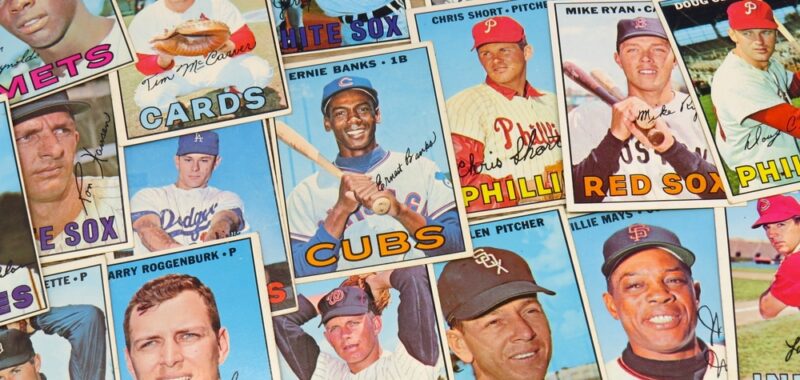An excerpt from The Purpose Code: How to unlock meaning, maximize happiness, and leave a lasting legacy.
Back in middle school, an awkward kid on the cusp of teenagerdom, I met a man who changed my life forever without intending to. He had stumbled upon his own sense of purpose and, because of it, was making his mark on the world—and those around him.
Roman was the picture of an aging athlete. His twenties had seen his muscles soften and the beginnings of a belly develop on his otherwise lean frame. His boyish face was patient and kind. He always seemed to be about to smile.
Roman would have described himself as a people person. In fact, it’s probably why he went into the antiques business in the first place. His high-school tenure as a top football player ended with the unfortunate twist of an ankle. Yet his natural affability—combined with furniture-refinishing skills learned from his carpenter father—made owning an antiques store in the Chicago suburbs more or less viable.
He spent his days hanging out in the store, refinishing old furniture in the back when foot traffic was slow, and buying and selling various doodads when he saw the opportunity to make a buck. One day, while cleaning out an old dresser in preparation for sanding, he scouted out a long-forgotten box of baseball cards tucked away in the far recesses of the bottom drawer. A quick call to the seller confirmed that the cards were unwanted and Roman was free to do with them as he pleased. While he often caught the Cubbies on the radio or the small portable television at the checkout counter, he had no idea how to place a value on the forgotten box of cards.
A few days later, a surly teenager accompanying his mother into the store provided a tidy solution. He offered Roman $100 for the whole lot. Feeling that luck was upon him—which it truly was, though not for the reason he thought—he parted with the haphazard collection without hesitation.
Now, as any of you reading this who happen to have a surly teenager at home will have experienced, they aren’t afraid to let you know when you have made a mistake. This young kid—Ryan was his name—was quick to spread a few cards on the counter right in front of Roman and explain why the collection was worth far more than $100.
And that’s when it suddenly clicked. Roman knew that he was meant to buy and sell baseball cards. He couldn’t explain why exactly. Maybe it was the memory of bending them into the spokes of his bike when he rode around the neighborhood with his friends in elementary school; or the touch of his father’s hand as he was dragged through the bleachers on that first visit to Wrigley Field for his fifth birthday. The synapses were firing but cognitive explanations were slow to follow.
The first thing Roman did was hire Ryan on the spot to help him build his empire. Then he started buying. A year later, what had once been seen by local children as a stuffy antiques store had become a hub for nerds, geeks, and baseball fans everywhere. Not only had store profits doubled, but Roman found himself at the center of a bustling, raucous, and growing community.
The store was never empty again, and Roman couldn’t have been happier.
Which is when I met him. A few years after my dad had died, and reeling from a learning disability that had placed me well behind my peers, I felt lonely and disconnected. I struggled with friendships and couldn’t contemplate finding a place where I felt that I belonged.
But then I did.
When I walked into Century’s Antiques, I met a group of kids who were just like me. They became my community. We were the outcasts, the nerds, those not popular enough to have their calendar populated with social events and parties. We existed under the benevolence of our “sponsor.” Roman always had a kind word, a new pack of cards to give away and open, and some well-placed advice when one of us came in moping over our latest disappointment.
Looking back on my childhood, this meant everything.
Unfortunately, at first glance, the story doesn’t have a happy ending. After a couple of years, Roman was diagnosed with metastatic cancer. Exhausted from chemotherapy, and an unexpected strike in major league baseball, he saw his record profits begin to spiral down. On a quiet Saturday morning, Roman closed Century’s Antiques, leaving a hole in the community felt particularly acutely by a rambunctious group of teens and preteens who had needed somewhere to belong.
Although Roman’s days were numbered, those moments behind the counter mentoring the neighborhood kids while sorting through cards and chewing the godawful gum that came wedged between each pack were some of his most joyful. Roman had stumbled into purpose and it led to happiness.
I’m not talking about earth-shattering, world-saving, fame-causing purpose—the kind that people often dream of; the kind that causes anxiety when we’re told (or think we’re told) we must have it to live a life of meaning and contentment. That’s because the first step to cracking the purpose code is realizing that the purpose that brings meaning and contentment isn’t that kind of purpose at all. It’s not Purpose with a big, shining capital letter; it’s purpose with a little “p.” Small—but with a bigger, better, more meaningful impact on your life than the grandest imaginable all-consuming PURPOSE in bright lights.
This purpose is found in small beckonings to pursue the things we are passionate about.
Jordan Grumet is an internal medicine physician, host of the Earn & Invest Podcast, and author of The Purpose Code: How to unlock meaning, maximize happiness, and leave a lasting legacy.

